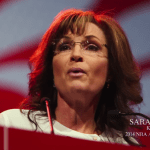At last the Tea Party has shaken not only the presently prevailing (but not long for power?) Democratic regime but even the firmament of national Republican celebrities in Washington. The Republican establishment is right to feel a lingering sting from Tuesday; the Tea Party has delivered a slap in the face. The message is clear: they are conservatives gladly and Republicans grudgingly, and nearly as deeply disappointed in the GOP as they are frustrated with the Democratic Party. While the Democrats have, from the Tea Party perspective, done damage on a catastrophic scale, the Republicans paved the way by squandering their years in power–with scandals and hypocrisies, mismanagement and the manifold compromises of “big government conservatism.” Compared to the robustly liberal accomplishments of less than two years of the Obama-Pelosi-Reid triumvirate, the preeminent domestic policy achievements of the six years in which Republicans controlled the executive and legislative branches seem tentative, few in number, and marked too much by concessions and calculations of political advantage.
We are not satisfied, was the message for the GOP Tuesday, with the job you have done representing us, and we are not satisfied with the candidates you have sought to foist upon us. To make matters worse, after months of suffering the constant slander from the Left that the Tea Party movement is comprised of hayseed bigots and knuckle-dragging idiots, now the Tea Partiers find themselves and the politicians they supported attacked by their “friends” in the GOP such as Karl Rove.
Or this, presumably, is how it feels to the Tea Partier. Which is what makes today’s Michael Gerson entry, “The Childish Political Thought of the Tea Party,” so interesting. I am a fan of Gerson’s. His thoughts are always worth hearing. In this case, I both agree and disagree with him, and I trust he will take both in the spirit of friendship.
Gerson observes how angry some conservative activists and writers became with Rove, and draws three points. I’ll address each in turn:
“First, it shows how some conservatives view the business of political commentary…[D]eviations from the party line are not permitted. It is not enough to dispute Rove’s critique; Rove himself must be punished. The message is clear: The facts do not matter…Anyone who doesn’t consistently take one side is a traitor.”
The “fact” is that Rove is no enemy of the Tea Party, and he is certainly no enemy of conservatism. Gerson is correct to that extent. Yet Rove is also not perceived as a mere political commentator. He is perceived, rightly or wrongly, as a part of the de-facto GOP leadership. And, after being lectured by that same leadership on how badly Republicans need to win the Delaware seat, it irks to see the GOP leadership (not only in the person of Rove) attack their new candidate for the seat. Perhaps more to the point, after suffering the slings and arrows of their political opposition, it is especially painful for the Tea Partiers to receive a knife in the back from their ostensible “friends.” It may not have been meant as a betrayal, but it apparently felt like one–indeed, as though the Tea Partiers were being punished for straying from the party line, not the other way around.
Second, the ferocity of this criticism indicates a growing arrogance. Tea Party purists, on the Internet and elsewhere, clearly believe their ascendance makes other elements of the conservative movement unnecessary…If Tea Party activists believe they can win in a political coalition so pure that it doesn’t include strong, mainstream conservatives such as Karl Rove, they are delusional. And they are hurting their own cause.
A few instances of “ferocity” should not be over-interpreted. I fear Gerson is buying into the “angry and deranged” Tea Party stereotype here; indeed, he uses the word “unhinged” earlier. These are not healing words, and nor, for that matter, is “childish.” In any case, I see no reason to believe that a few angry references to Rove translates into “growing arrogance” on the part of a movement of millions. The vast majority of Tea Partiers deserve better than this: they are ordinary Americans who are upset by what appears to be an unaccountable government with an out-of-control spending habit. There is nothing insane in this concern. Finally,
Third, some conservatives seem to display special venom for those who are “compromised” by the experience of actually winning and governing. Rove, according to [Michelle] Malkin, is an “establishment Beltway strategist.” Actually, he is a former high-level policy aid to the president of the United States and the primary author of two presidential victories. This does not make him always right. But it means he has had responsibilities bigger than running a Web site…In Tea Party theory, inexperience is itself seen as a kind of qualification. People like O’Donnell are actually preferable to people like Rove, because they haven’t been tainted by public trust or actual achievement. This is the attitude of the adolescent — the belief that the world began on their thirteenth birthday. It is also a sign of childish political thought.
This is unfair, and Gerson misses an important point here. Of course “inexperience” is not “seen as a kind of qualification.” Rather, being an “outsider” is regarded as preferable to having grown too accustomed to the compromises and concessions of Washington politics, or having lost touch with constituents and thus according greater heed to the faux-enlightened opinions of the Beltway Brahmins. When a person like Rove is described as a part of the “establishment,” he is being criticized for being too insular, too protective of his pals in power, and too willing to indulge in horse-trading at the expense of conservative principle. Surely Gerson knows this.
Where he could have made a more nuanced point is on the matter of achievement. Gerson himself is a highly accomplished man. The Tea Partiers are not suspicious of accomplishment, but of the compromises that are (or have been perceived to be) necessary for accomplishment. This is not “childish”; every political party must strike a balance between ideological purity and practical compromise, and the Tea Partiers and the Republican leadership simply disagree on the right balance at this present moment. Yet this is where Gerson is right that Tea Partiers may be undermining their own cause. Compromise is the enemy of ideology in the theoretical realm, yet the handmaiden of ideology in the real world. Since Republicans have not controlled the Senate with a filibuster-proof margin, compromises have been necessary. And since there are not enough conservatives in the electorate to win nationwide elections without winning over independents, compromises are necessary now.
William F. Buckley’s advice was to vote for the most conservative electable candidate. Time will tell whether the Tea Partiers followed or ignored this advice. I would not have voted for O’Donnell in the primary; and as a commentator, I am, as Gerson writes, obliged to speak honestly of both parties. Yet a division between the Tea Party activists and the Republican illuminati serves neither side well.










